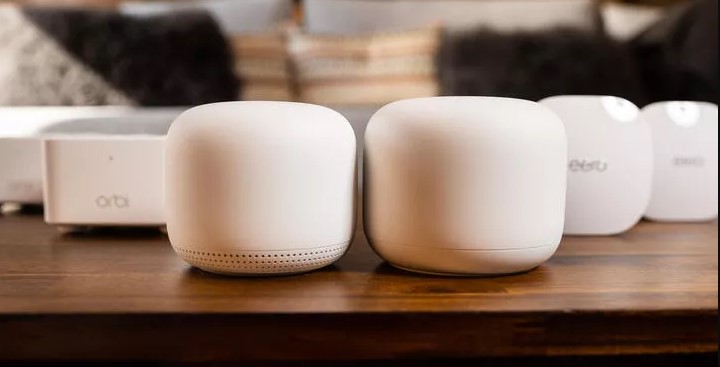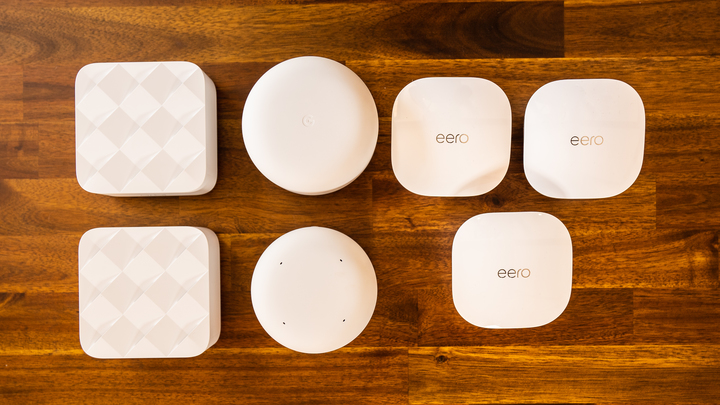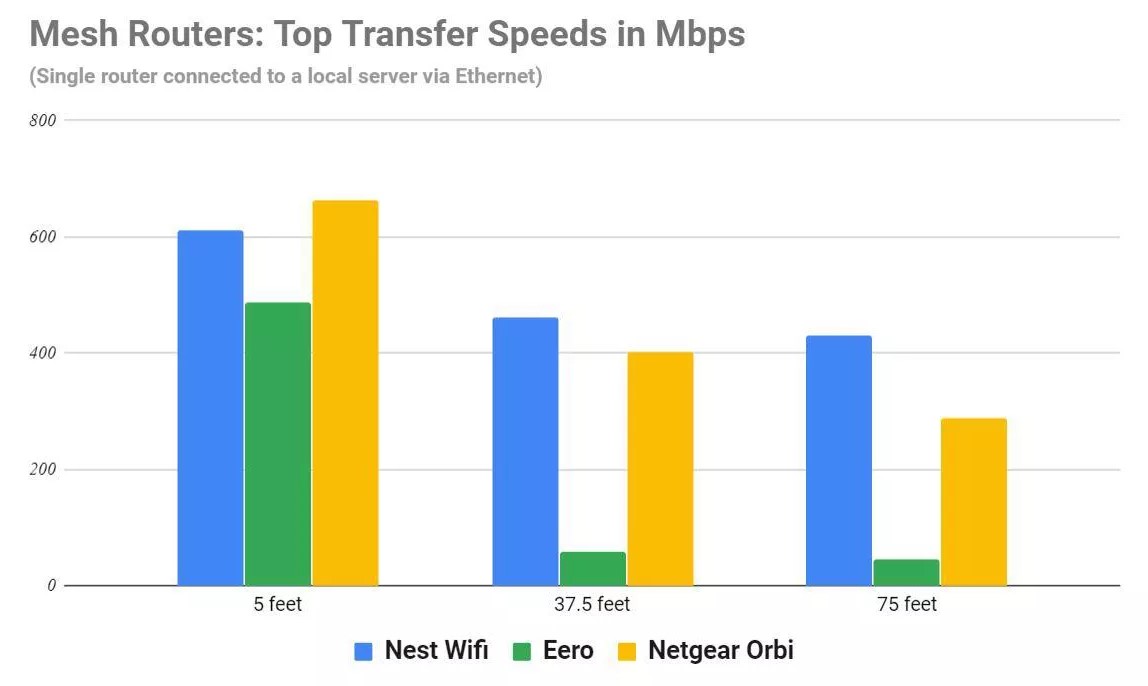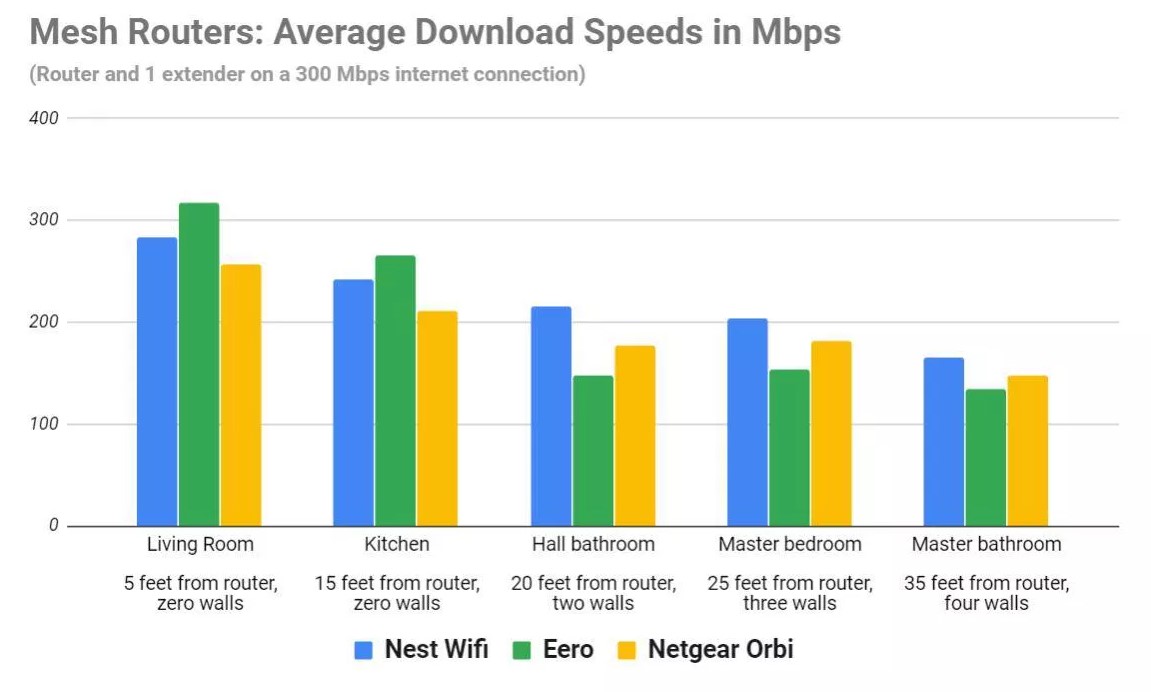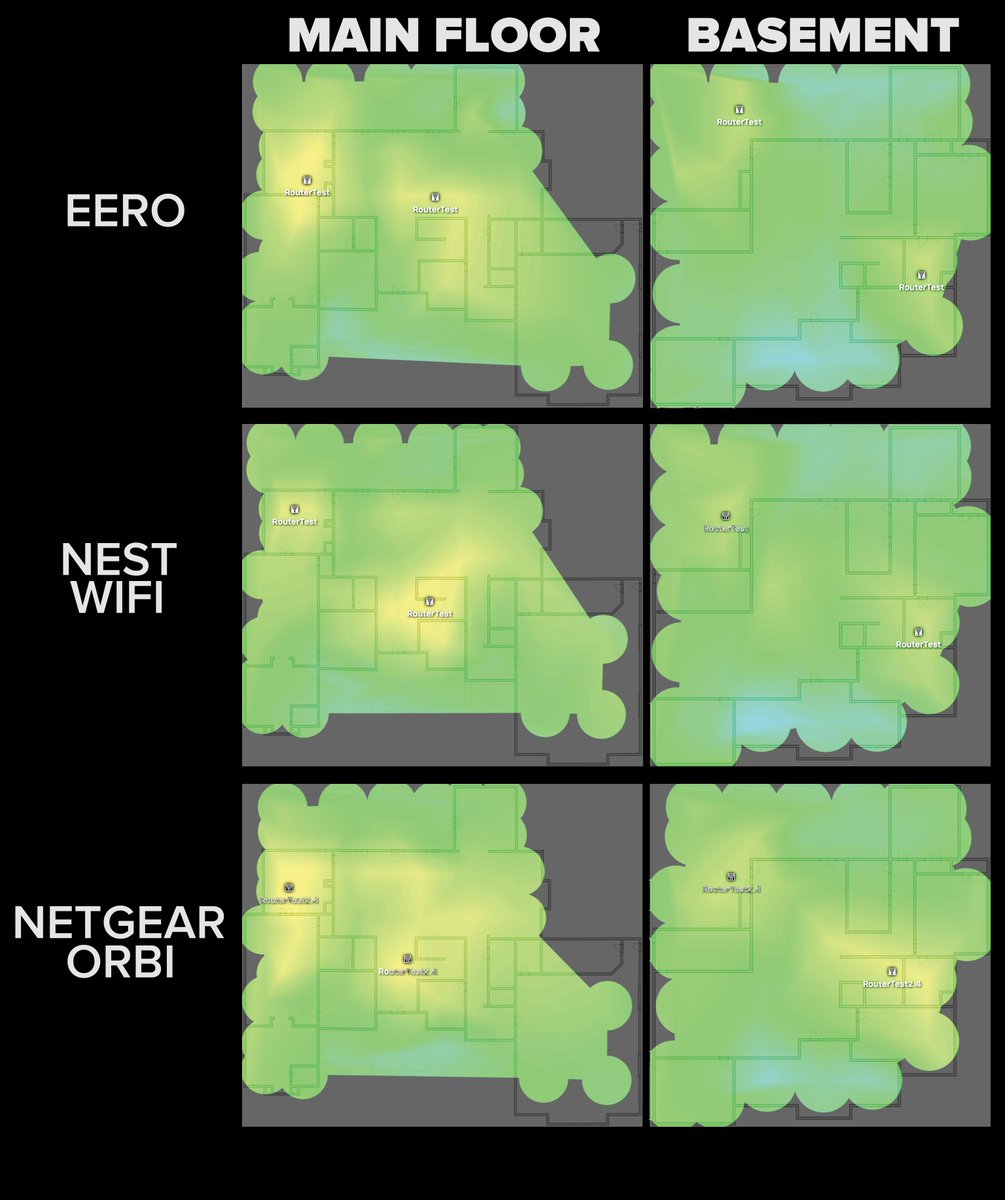I& #39;ve spent countless hours over the last few months testing the newest mesh Wi-Fi systems from Nest, Eero, and Netgear Orbi. All three are great options with faster top speeds and lower price tags than before. Here& #39;s how to choose between them: https://www.cnet.com/news/best-mesh-wi-fi-routers-2019/">https://www.cnet.com/news/best... (via @CNET)
A mesh Wi-Fi system uses multiple devices to relay a stronger Wi-Fi signal throughout your home. You& #39;ll plug one device into your modem just like a normal router, then place range-extending satellite devices in other rooms. More devices = more coverage.
For this comparison, we looked at two-piece setups from Netgear Orbi and Nest, which each feature a dedicated router and distinct satellite devices, and a three-piece setup from Eero, where the devices are interchangeable and any of them can act as either router or satellite.
Should note here that Netgear and Nest each now offer three-piece setups, too. At time of testing, we only had access to their two-piece kits.
And here& #39;s how the prices break down, by the way:
EERO
3-Pack: $249
Add-on Satellite: $99
NEST
2-Pack: $269
3-Pack: $349
Add-on Satellite: $149
NETGEAR ORBI
2-Pack: $150
3-Pack: $230
4-Pack: $300
EERO
3-Pack: $249
Add-on Satellite: $99
NEST
2-Pack: $269
3-Pack: $349
Add-on Satellite: $149
NETGEAR ORBI
2-Pack: $150
3-Pack: $230
4-Pack: $300
Let& #39;s look at some of our test data, starting with top speeds. We wired a single router from each system to a local server, then transmitted data to a laptop on the router& #39;s network at various distances. Netgear the fastest at close range. Nest best at distance, Eero not so much.
Remember that Netgear and Nest each use distinct routers. With Eero, every device is a range extender that can do router duty if you plug it into your modem. They aren& #39;t designed to do well on their own.
I& #39;ll also note that in each case, the top speeds are about 100 or 200 Mbps faster than the top speeds we clocked with the previous generation of each system.
So now, let& #39;s take a look at real-world speeds. I took each system home and set them each up with one range extender on my 300 Mbps AT&T fiber internet connection. These are the average download speeds in each room of my smallish, 1,300 sq. ft. house. All three did great.
Not a big challenge for these systems to provide decent coverage in a small home like mine, but it& #39;s still pretty striking that Eero was able to make up so much ground after that single-device top speed test. Speaks to a really well-designed mesh system.
The last big test I want to mention is our coverage tests, where we move into a much bigger space to see how good each system is at spreading a strong signal from room to room. Our test lab of choice; the 5,800 sq. ft. CNET Smart Home, here in Louisville, KY.
For this test, we set each system up, then used special software to track the signal strength and the signal-to-noise ratio at dozens of points around the property. Gives us a very good look at the coverage each system offers. Better signal strength = faster speeds at range.
Here are the heat maps for each system with a router and one range extender on the main floor. Yellow is great, green is good, and blue is bad.
Pretty close -- though Netgear& #39;s router did an especially good job of getting a signal down into the basement.
Pretty close -- though Netgear& #39;s router did an especially good job of getting a signal down into the basement.
For a big home like this one, you& #39;d almost certainly want at least two range extenders. Eero& #39;s kit comes with three, and -- no surprise -- adding that third device down in the basement makes a huge difference.
On hardware alone, it& #39;s close. between all three. Netgear Orbi is your clear value pick, Nest a pretty obvious upgrade choice with Google Assistant smart speakers built into each system. Eero nice for large homes since add-ons only cost $99 each.
Lots more to consider, including system stability, app features, and the fact that none of these systems support Wi-Fi 6. You can read more in my full guide, linked below -- for now, thanks for threading with me. Lots more mesh coverage coming soon! https://www.cnet.com/news/best-mesh-wi-fi-routers-2019/">https://www.cnet.com/news/best...

 Read on Twitter
Read on Twitter